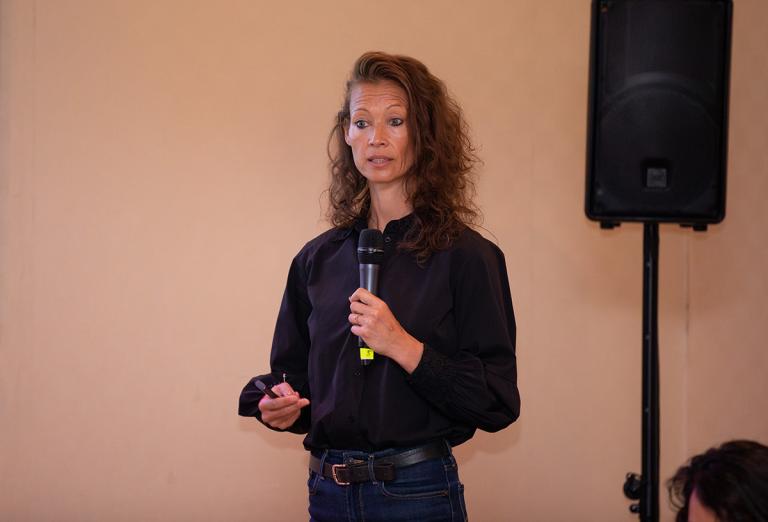The importance of pan-European coverage in infectious diseases research
Western and Northern Europe have traditionally been at the forefront of clinical trial efforts. However, the need for pan-European coverage in clinical research has become increasingly evident. We argue that access to a more diverse range of patients, pathogens, and expertise can improve research outcomes.
Historically, Western and Northern Europe have been prominent hubs for clinical research due to their well-established healthcare infrastructure and streamlined regulatory frameworks. Countries such as Germany, France, Spain, and the United Kingdom have traditionally attracted a significant share of clinical trials. This is also the case in infectious diseases research. In the groundbreaking REMAP-CAP study, for example, less than 20% of the European clinical trial sites are located outside of Western and Northern Europe.
Benefits of wider coverage
By including clinical trial sites in all regions of the continent, researchers gain access to a more diverse range of (patient) populations, genetic backgrounds, pathogen distributions, socio-economic statuses, and healthcare practices. Eastern and Southern Europe are particularly interesting for infectious diseases research due to the prevalence of infectious diseases and antimicrobial resistance, as well as population characteristics and the amount of untapped talent.
In addition, by expanding their geographical reach, researchers can tap into a more extensive pool of expertise, perspectives, and methodologies, enhancing the quality and impact of the research. Participating in well-funded, high-quality trials also strengthens local healthcare systems by introducing modern research and treatment protocols and can foster a sense of community among healthcare professionals.
Challenges and solutions
The infrastructure for conducting clinical trials in Eastern and Southern Europe is still developing. Regulatory hurdles and varying healthcare practices can pose obstacles that often drive sponsors’ and researchers’ preference toward experienced sites in other regions.
To overcome these challenges, collaboration between research institutions, governmental bodies, and regulatory agencies is vital. Streamlined regulatory processes, investing in infrastructure, and capacity-building efforts can enhance research capabilities and facilitate the integration of these regions into the broader research landscape.
“Including sites from Eastern and Southern Europe in a research network improves the representativeness of affiliated trials’ findings and allows for the identification of local differences and variations. Furthermore, it gives patients access to new treatments and innovative therapies, closing the research and innovation gap within Europe.”
– Miranda Hopman, Head of Ecraid’s hospital network CLIN-Net

Expanding Ecraid’s warm-base network
Ecraid coordinates a pan-European 'warm-base' network of hospitals, laboratories, primary care sites, paediatric care sites and long-term care facilities to deliver rapid, cost-efficient, high-quality clinical research services to public and private partners.
Confident in the benefits of pan-European coverage, we work hard to maintain and expand our hospital network CLIN-Net’s reach in both Eastern and Southern Europe. We collaborate with local experts (Ecraid Clinical Liaisons) and local networks to maximise the representativeness of the research projects we work on. Furthermore, Ecraid actively helps sites in these regions to realise their full potential. We focus on capacity building activities, such as a complimentary Good Clinical Practice (GCP) training available to local site staff that are part of our warm-base network.
Importantly, Ecraid aims to set up research initiatives specifically focused on Eastern Europe. A good example is the HONEST-PREPS study conducted under Ecraid’s predecessor COMBACTE. The study aimed to build an infrastructure to prospectively enroll patients at risk of hospital-acquired or ventilator-associated pneumonia (HAP/VAP) in the intensive care unit (ICU) located primarily in Eastern European countries. It not only delivered relevant insight into the epidemiology of HAP/VAP in a region in Europe often underreported, but local research teams felt encouraged by the attention and support provided.
If you are interested in taking advantage of its pan-European coverage for your trial, get in touch at CLIN-Net@ecraid.eu. Do you work at a clinical site and would like to join Ecraid’s hospital network? Sign up here.
Warm-base networks
Ecraid's first in-house white paper lays out the principles of a warm-base network in clinical research and showcases its advantages. It also provides practical advice on how to set up such a network. Finally, to bring the theory to life, the paper offers a concrete example of an existing warm-base network – Ecraid’s hospital network CLIN-Net.
This resource can be useful to those who conduct multi-centre clinical research themselves, as well as to anyone with a vested interest in finding the most suitable sites for their trial faster and more efficiently.
